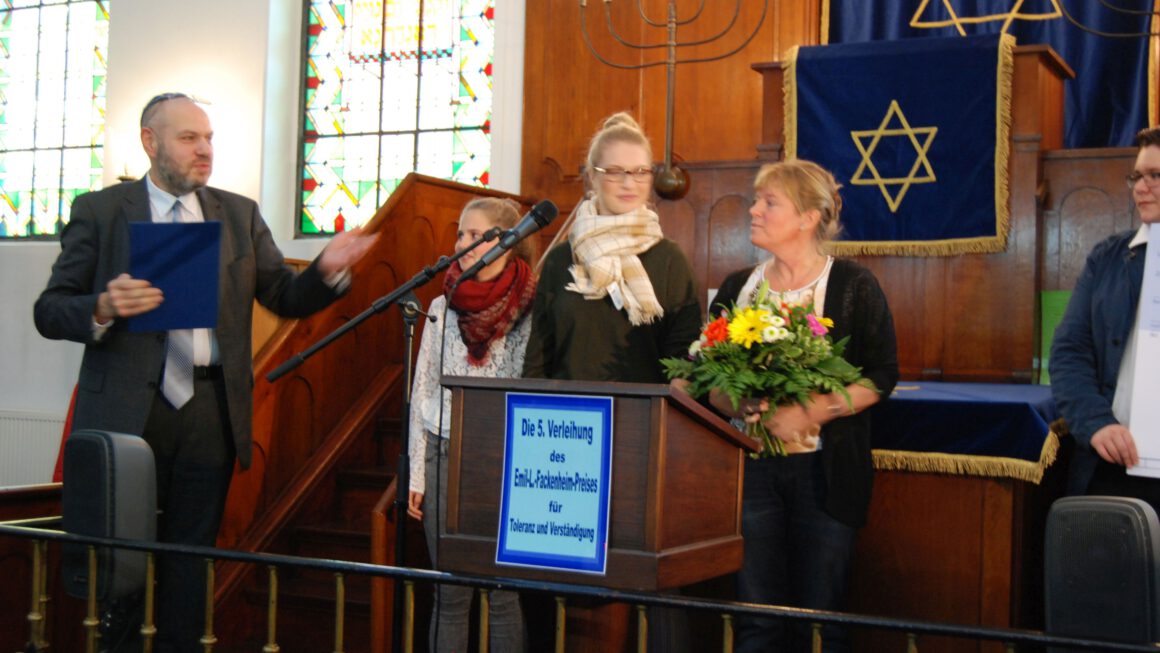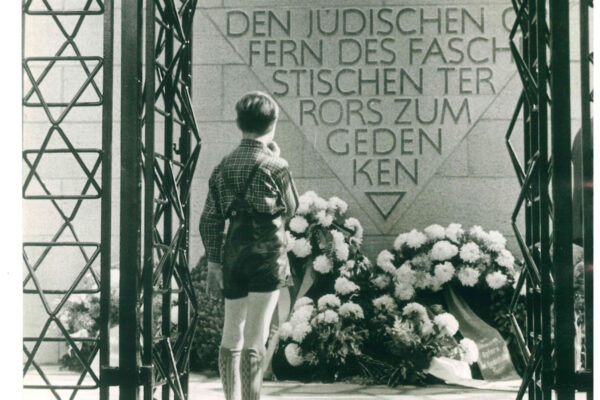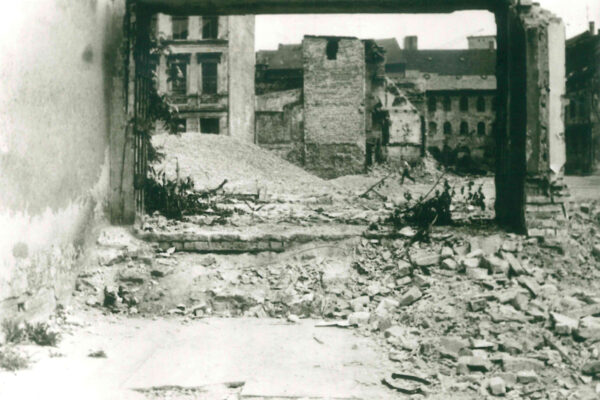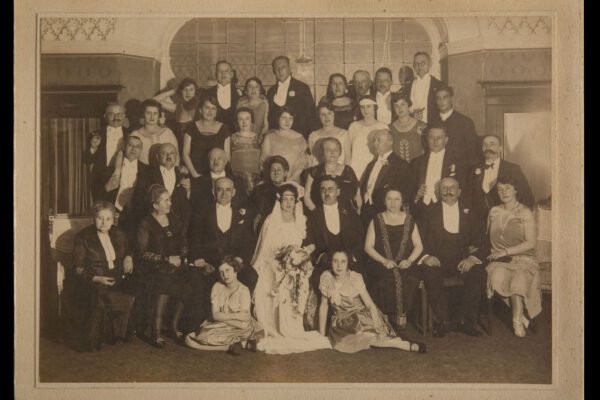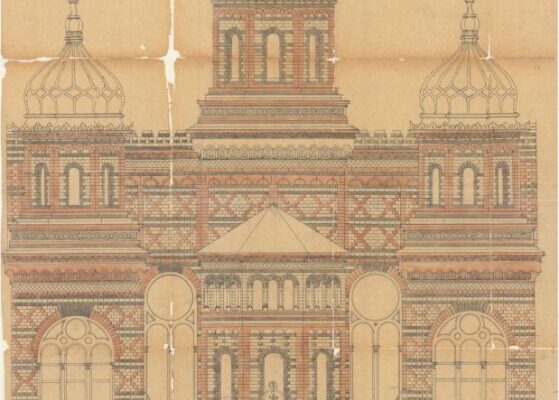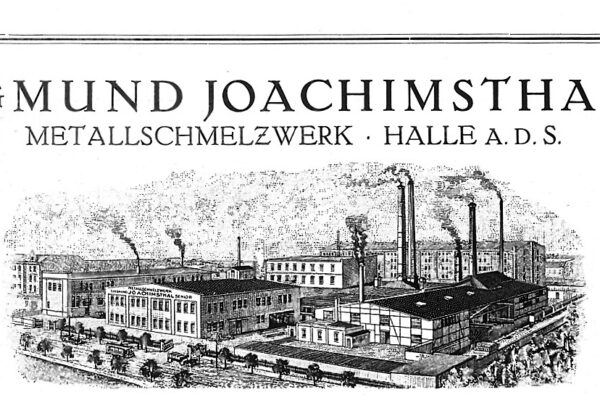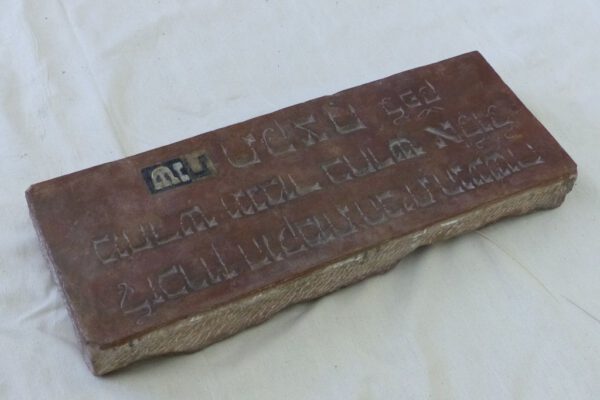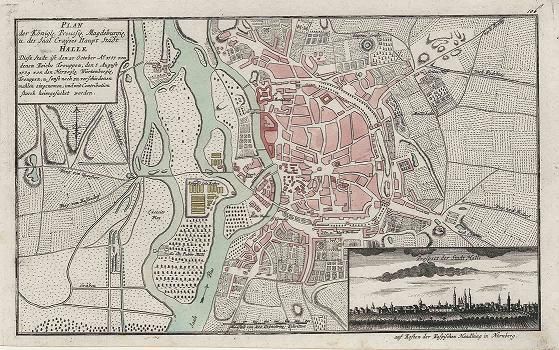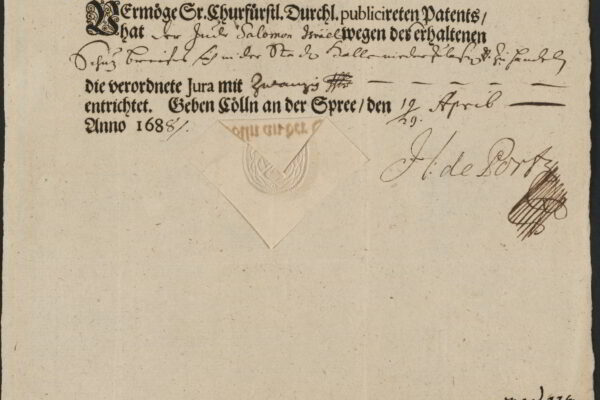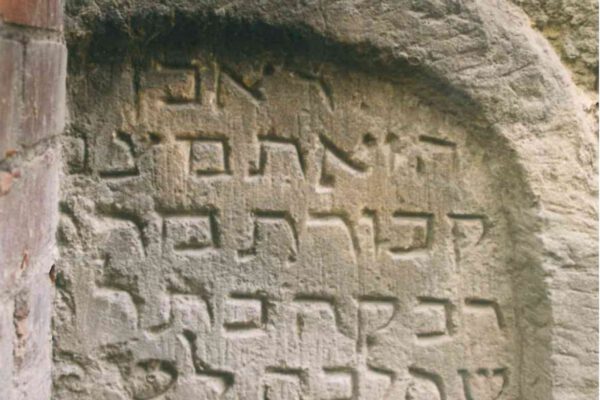After a difficult phase of internal renewal within the Jewish community, Max Privorozki took over as president of the community in February 1999. He represents the interests of the community in the city and is Chairman of the State Association of Jewish Communities in Saxony-Anhalt, which is a member of the Central Council of Jews […]
The Jewish community in the post-war period
Survivors of the Holocaust from Halle and the surrounding area once again founded a Jewish community in 1947, which moved into the community center at Grosse Märkerstrasse 13 in 1952. With the permission of the Soviet military administration, the mourning hall on Humboldtstrasse was converted into a synagogue, as such a building had been missing […]
Destruction of the Halle synagogue
The exclusion, persecution, and expulsion of the Jewish community in Halle began even before the National Socialists seized power. Days before the “Reich-wide” boycott, Jewish stores, practices, and apartments were already being destroyed and looted here. Whereas, before 1933, many Jews in Halle often only visited the synagogue on high holidays, it now once again […]
Construction of the Expressionist Mourning Hall
To this day, former Jewish businesses and shops such as the Lewin Department Store (now Thalia) still characterize Halle’s distinctive cityscape. They bear witness to the glorious past of the Jewish community, which played a decisive role in Halle’s rise to become a Central German industrial metropolis. For Jews in Halle, the years of the […]
Expansion of the synagogue
In the nineteenth century, due to the economic upswing, the city became increasingly attractive for immigrants, including the settlement of Jewish citizens. When, in 1890, Halle, with a population of roughly 100,000, joined the ranks of the major German cities, 660 Jews were already living here. Within a very short time, the number of congregation […]
The first own rabbi in Halle
The nineteenth century in Halle was also marked by economic upswing. The railroad connection in July 1840, sugar beet processing, the increasing use of brown coal, and local economic planning on the part of Halle’s merchants initially ensured a gradual economic upswing for the city, which then took off in leaps and bounds in the […]
Temporary right as a citizen
In 1806, Halle was the first city in the Kingdom of Prussia to be occupied by Napoleon’s French troops. As a result, the city—now called “Departement der Saale, District Halle”—came under the rule of the Kingdom of Westphalia, whose constitution was valid from then on. For the Jews of Halle, this meant a considerable improvement […]
The first Jews studying at the Friedrich University in Halle
Shortly after the founding of the Friedrich University of Halle in 1694, Jews were also allowed to study there. Already in 1695, Salomon Liebmann, son of the court jeweler Jost Liebmann from Berlin, enrolled at the “University of the Enlightenment.” Since only the medical faculty was open to Jews, the first Jewish students studied under […]
In 1688 Salomon Israel received permission to settle in Halle
After roughly 200 years, in the late seventeenth century, Jews once again settled in Halle for the first time. The first person to receive permission for this in 1688 was Salomon Israel, stepson of the court jeweler Jost Liebmann from Berlin. In return, however, he had to pay an annual protection fee to the Elector […]
First Jewish settlement within the city walls of Halle
In 1184, a Jewish settlement within the city walls of Halle is mentioned for the first time in a document regarding a donation by Archbishop Wichmann (before 1116–1192) to the Seeburg monastery of two marks per year, which had to be raised by Halle’s Jews. With this sum, which was high by the standards of […]

